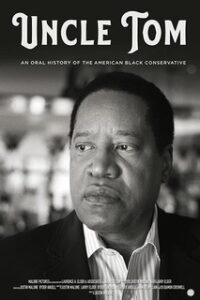War and Peace in Business:
What Kind of Leader Are You?

A colleague recently sent me an article titled “Peacetime CEO/Wartime CEO.” It was written by Ben Horowitz, cofounder and partner of Andreesen Horowitz, a venture capital firm. The thesis: When a business is mature and growing slowly, it is well served by a CEO that is adept at managing size and stability. But when a business is “facing an imminent existential threat,” it needs an entirely different kind of leader. Someone that is single-minded and tough. Someone willing to make decisions that no one else will.
Horowitz calls the first type a “Peacetime” CEO,” and the second a “Wartime” CEO.
The article was meant to advance a conversation we’ve been having about a company in which we are partners. After decades of growth and a decade of industry dominance, the business is floundering. The first signs of trouble arose two years ago, at which time each of the individual divisions began taking steps to move their businesses back onto solid ground. Since then, we’ve noticed that (1) some of our subsidiaries are faring better than others in regaining profitability, and (2) those that are doing better are being managed very differently than those that continue to struggle.
If Horowitz were advising us, he’d probably tell us to look at our CEOs, figure out whether they are equipped for war or peace, and then give the peacetime CEOs a choice: Change your ways or let someone else take the wheel.
I have my own theory of leadership, which I’ve written about over the years. My idea is that there are two kinds of business leaders: those that are good at growing businesses and those that are good at managing them after they’ve grown. I call the first kind Growers and the second kind Tenders.
Growers are not better than Tenders. Businesses need both. But at different times and in different places. When businesses are young, they need Growers at the helm, with Tenders reporting to them. When businesses are mature, they need Tenders at the helm, with Growers helping them develop newer parts of the business.
Horowitz’s Peacetime CEOs are very similar to my Tenders. They are thoughtful and analytical. They are capable of multitasking. And they love making plans and solving problems. They don’t like making mistakes. And they are careful about what they say. They have these preferences and characteristics because they understand that keeping a mature business running profitably is a huge challenge that requires constant attention to the three Ps: people, protocols, and products.
Wartime CEOs and Growers are also similar. They are goal-oriented and accomplishment-driven. They tend to be narrowly focused. Once they make a decision, they like to move quickly. And they don’t like people second-guessing their decisions and slowing them down. They recognize that problems need to be solved. But they expect their subordinate managers to solve them. They understand that growing a business or saving a struggling one requires extraordinary singularity of purpose. It calls for the CEO to focus almost exclusively on Job Number One. And get it done, whatever the cost.
Steve Jobs is an example. A Type-A personality, he was a natural Grower. And he grew Apple aggressively to an astonishing level of success before he was fired and replaced by someone that was less impulsive and entrepreneurial. His replacement may have fit the bill in terms of the kind of personality Apple’s board was looking for. But he couldn’t keep the company growing. And for a company like Apple, that meant it began to lose its momentum and fall behind. When Jobs was finally asked to return to Apple, he came back as a Wartime CEO, and made the radical changes needed to get Apple back on top.
As for the business I’m writing about, my partners and I have no plans to recruit warriors to replace our peacetime leaders. But we do want to persuade them to put on their helmets and start making tough and decisive decisions like wartime leaders. Here’s how they can do that…
How Peacetime Managers Can Become Wartime Generals
Dealing with Problems: Peacetime CEOs and Tenders see their primary job as identifying and solving problems. To become more like Wartime CEOs and Growers, they have to severely limit the number of things they are paying attention to. Instead of trying to stay on top of a dozen issues, they need to identify the two or three that will make the greatest difference in accomplishing their primary goal and spend 80% of their time and energy on them. This will undoubtedly create additional problems. But they must resist their impulse to solve those problems and delegate the responsibility to others.
Conflict: Peacetime CEOs and Tenders see their primary job as helping the business run smoothly. And because they see conflicts – whether systemic or personal – as threats to the continued smooth running of the business, they focus on eliminating those conflicts. To become more like Wartime CEOs and Growers, they need to focus, instead, on the two or three things that will bring the business back to profitable growth – and make it clear to every employee that they must be focused on the same thing. They need to emphasize that any problems that might arise have to be resolved by those involved.
Deviation and Creativity: Peacetime CEOs and Tenders allow for, and even encourage, deviations and experiments in order to foment good will and creativity. To become more like Wartime CEOs and Growers, they have to make it clear to their employees that until such time as the business is stable and profitable again, there will be a zero tolerance for deviation from the core plan. “If you want to keep your job,” they must imply, “you will toe the line.”
Team Building and Consensus: Peacetime CEOs and Tenders strive for broad-based buy-in and even consensus. To become more like Wartime CEOs and Growers, they need to explain to the troops that there is no room for anyone that is not enthusiastically with the team. They need to be able to back this up by firing the doubters and laggards. Saving and growing the business doesn’t just matter. It is the only thing that matters.
 MarkFord
MarkFord


